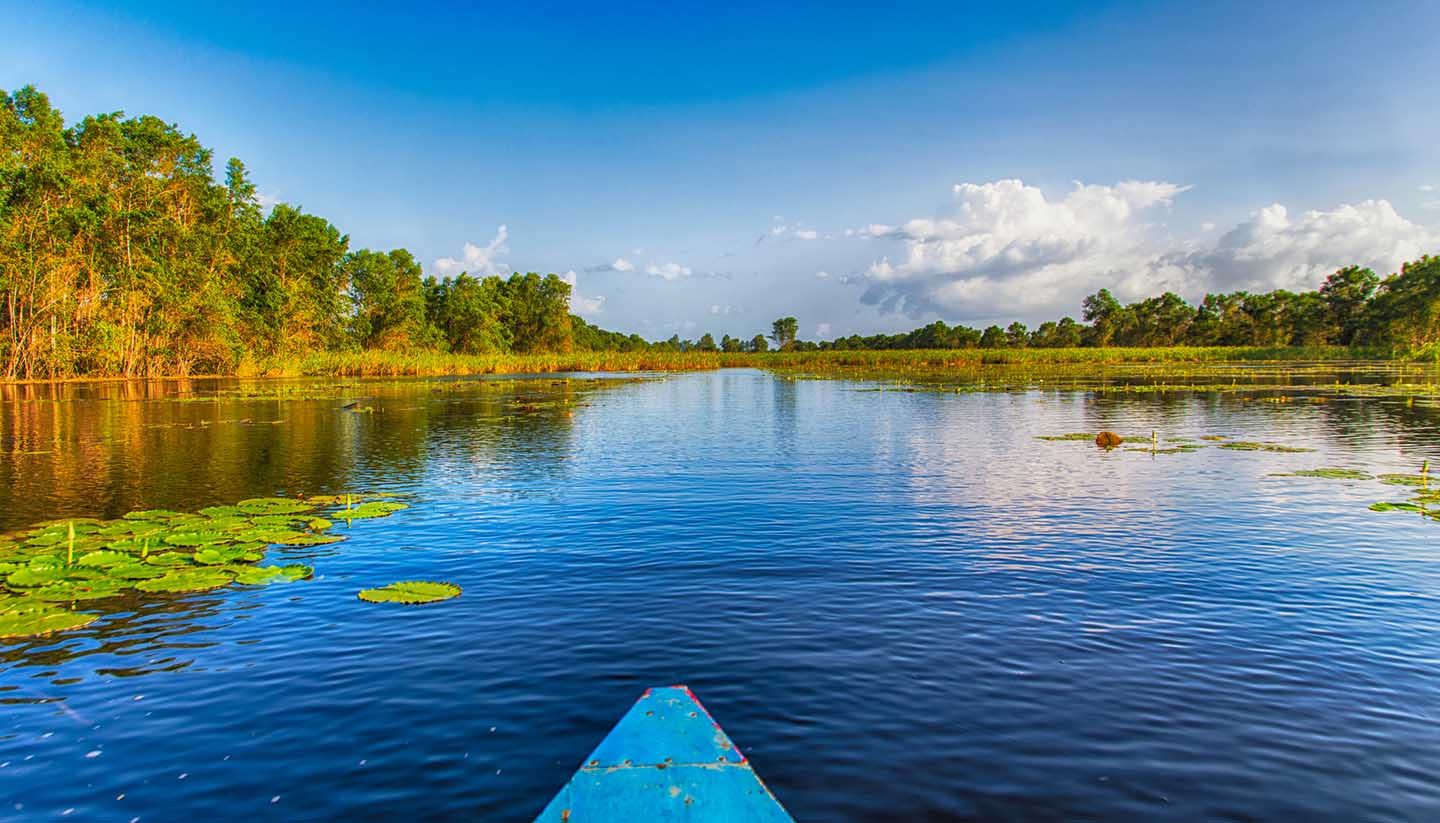Are you planning a trip to Suriname? Are you wondering about the visa and entry requirements for tourists? Well, you’re in the right place! In this article, we will discuss all the important information you need to know before visiting Suriname.
When it comes to visas, Suriname has different requirements based on your nationality. For most countries, a tourist visa is required, which you can obtain by applying at the Surinamese embassy or consulate in your home country. The visa allows you to stay in the country for up to 90 days. However, there are some countries that have visa exemption agreements with Suriname, allowing their citizens to enter for tourism purposes without a visa.
In addition to the visa, there are a few other entry requirements you should be aware of. First, make sure your passport is valid for at least 6 months beyond your intended stay in Suriname. It’s also important to have proof of yellow fever vaccination, as Suriname is a yellow fever endemic country. Lastly, you may be asked to provide proof of accommodation and a return or onward ticket during your stay.
In conclusion, planning your trip to Suriname involves understanding the visa and entry requirements. It’s crucial to check the specific requirements based on your nationality and ensure you have all the necessary documents. In the next article, we will explore the top tourist attractions and activities in Suriname, so stay tuned! Suriname, located on the northeastern coast of South America, is a hidden gem that offers a unique blend of vibrant culture, breathtaking nature, and rich history. If you’re planning to visit this beautiful country, it is essential to familiarize yourself with Suriname’s visa and entry requirements. In this tourist’s guide to Suriname, we will walk you through the necessary documents, entry regulations, and other vital information that will make your trip hassle-free and enjoyable.
Visa Requirements
Passport Validity
Before embarking on your journey to Suriname, ensure that your passport is valid for at least six months beyond your intended stay. It is always prudent to check your passport’s expiration date well in advance and renew it if necessary.
Visa Exemption
Suriname offers visa exemption to citizens of several countries for short stays. If you hold a passport from the following countries, you can enter Suriname without a visa for up to 90 days: United States, Canada, European Union member states, Australia, New Zealand, Brazil, Argentina, Chile, and Israel. However, it is essential to check the latest visa exemption rules and regulations as they can change periodically.
Visa-on-Arrival
For citizens of countries not eligible for visa exemption, Suriname provides a visa-on-arrival facility. Upon arrival at the Johan Adolf Pengel International Airport in Paramaribo, you can obtain a tourist visa valid for up to 90 days. To ensure a smooth process, make sure to have the necessary supporting documents, including a return ticket, proof of accommodation, and sufficient funds to cover your stay.
Entry Requirements
Customs Regulations
When arriving in Suriname, you will need to pass through customs. It is vital to familiarize yourself with Suriname’s customs regulations to avoid any unnecessary complications. Importing illegal drugs, firearms, and other prohibited items is strictly prohibited. You may also be required to declare large amounts of cash or valuable items upon entry.
Currency and Monetary Regulations
The official currency of Suriname is the Surinamese dollar (SRD). It is advisable to exchange your currency into Surinamese dollars upon arrival. Credit cards and debit cards are widely accepted in major establishments, but it’s always a good idea to carry some cash for smaller businesses or remote areas.
Health and Vaccination Requirements
To ensure a safe and healthy trip to Suriname, it is recommended to consult with your healthcare provider regarding the necessary vaccinations. Commonly recommended vaccines include hepatitis A and B, typhoid, and yellow fever. It is also wise to carry mosquito repellent and take precautions to prevent mosquito-borne illnesses, such as malaria and dengue fever.
Travel Insurance
While not mandatory, it is highly recommended to obtain comprehensive travel insurance before visiting Suriname. Travel insurance provides coverage for medical emergencies, trip cancelation, lost luggage, and other unforeseen circumstances. Having travel insurance will give you peace of mind and protect you from any potential financial burdens.
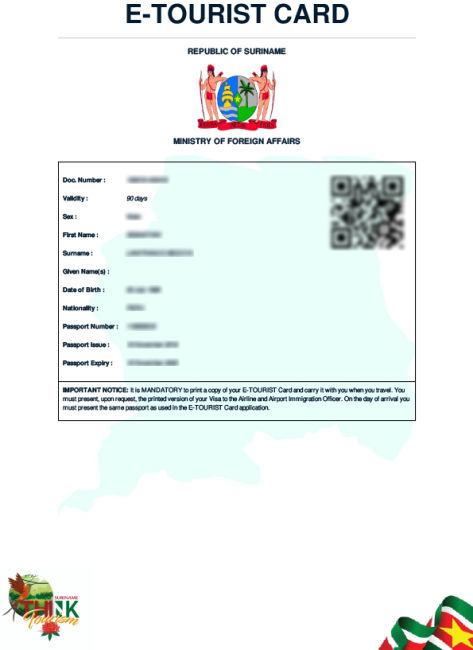
Tourist Attractions
Suriname offers a wide range of tourist attractions that cater to different interests. From exploring the vibrant capital city of Paramaribo to venturing into the heart of the pristine rainforests, there is something for everyone.
Paramaribo – Capital City
Start your Suriname adventure by exploring Paramaribo, the country’s capital city and a UNESCO World Heritage Site. The city boasts colonial-era architecture, bustling markets, and a rich cultural heritage. Take a stroll along Waterkant Street, visit the iconic Presidential Palace, and immerse yourself in the vibrant atmosphere of the city.
Central Suriname Nature Reserve
For nature enthusiasts, the Central Suriname Nature Reserve is a must-visit destination. This vast protected area is home to diverse flora and fauna, including jaguars, giant river otters, and numerous bird species. Experience the untouched beauty of Suriname’s rainforest, hike along scenic trails, and discover hidden waterfalls.
Galibi Nature Reserve
Located on the northeast coast of Suriname, the Galibi Nature Reserve is a haven for wildlife enthusiasts. It is renowned for its turtle nesting sites, where you can witness the incredible spectacle of endangered sea turtles laying their eggs. The reserve is also home to a vibrant indigenous community and offers opportunities to learn about their culture and traditions.
Brownsberg Nature Park
Escape the hustle and bustle of the city and immerse yourself in the natural beauty of Brownsberg Nature Park. This protected area encompasses lush rainforests, stunning waterfalls, and breathtaking viewpoints. Embark on hiking trails, spot exotic birds, and witness the magnificent scenery from the top of Brownsberg Mountain.
Fort Zeelandia
Discover Suriname’s rich history by visiting Fort Zeelandia, a historic fort located in Paramaribo. This colonial-era fort played a significant role in Suriname’s past and now houses a museum that showcases the country’s history and cultural heritage. Explore the exhibits, learn about Suriname’s colonial past, and appreciate the architectural beauty of this iconic landmark.
Cultural Etiquette
To fully immerse yourself in Surinamese culture, it is essential to understand and respect the local customs and traditions.
Greeting Customs
When greeting locals in Suriname, a warm and friendly approach is always appreciated. Handshakes are the most common form of greeting, but it is also customary to greet with a kiss on the cheek, particularly among friends and family. When meeting elders or people of higher status, it is respectful to address them with honorific titles and show deference.
Respecting Local Traditions
Suriname is a melting pot of different cultures, including Indigenous, African, Indian, and Javanese. It is crucial to respect and appreciate these diverse traditions. When visiting indigenous communities or participating in cultural events, follow the guidance of your hosts, show interest, and ask questions respectfully. Dress modestly when visiting temples or religious sites and always seek permission before taking photographs.
Dress Code
Suriname has a relatively relaxed dress code, but it is advisable to dress modestly and respectfully, especially when visiting rural areas or religious sites. In urban areas, casual attire is accepted, but beachwear and revealing clothing should be reserved for the beach or poolside.
Photography Etiquette
Suriname offers picturesque landscapes and vibrant cultural scenes that are worth capturing. However, it is essential to respect people’s privacy and ask for permission before taking their photographs, particularly in indigenous communities or secluded areas. Some religious sites may have restrictions on photography, so always observe the guidelines and respect the sanctity of these places.
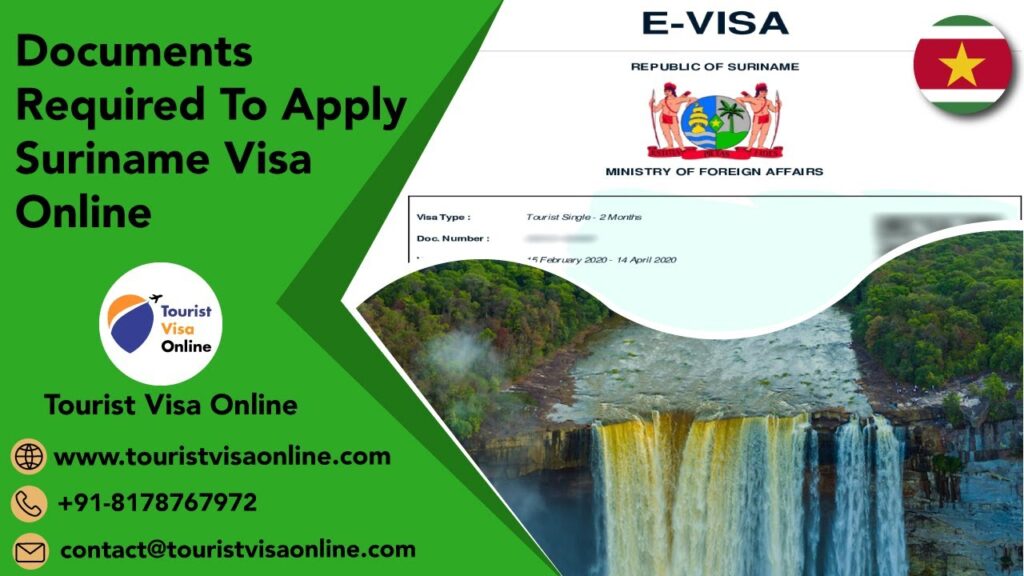
Transportation Options
Suriname has a well-connected transportation system that allows tourists to explore the country conveniently.
Air Travel
If you are traveling from abroad, the easiest way to reach Suriname is by air. Johan Adolf Pengel International Airport, located just outside Paramaribo, is the main international gateway. Several international carriers offer direct flights to Suriname, ensuring easy accessibility for tourists.
Public Transportation
In Paramaribo, public buses and minibusses, locally known as “Bush-Taxis,” are the most common mode of transportation. These vehicles operate on fixed routes and offer an affordable and convenient way to get around the city. Remember to carry small change for bus fares, as drivers may not always have change for larger bills.
Taxis and Hire Cars
Taxis are readily available in Paramaribo and other major towns. It is advisable to negotiate the fare before boarding the taxi to avoid any misunderstandings. Additionally, car rental services are available for those who prefer the freedom and flexibility of having their vehicle.
Accommodation Options
Suriname offers a range of accommodation options to suit different budgets and preferences.
Hotels and Resorts
Paramaribo and other major towns in Suriname boast a variety of hotels and resorts, ranging from luxurious 5-star establishments to budget-friendly options. These accommodations offer comfortable amenities, excellent services, and convenient locations for exploring the city and its surroundings.
Guesthouses and Bed & Breakfasts
For a more intimate and authentic experience, consider staying at guesthouses or bed & breakfasts. These accommodations are often family-run, providing a cozy and welcoming atmosphere. They allow you to interact with locals, experience Surinamese hospitality, and gain insights into the local way of life.
Eco-lodges
If you’re looking to connect with nature and prefer sustainable tourism, Suriname offers several eco-lodges nestled in remote and pristine areas. These lodges provide an eco-friendly experience, allowing you to immerse yourself in the rainforests, observe wildlife, and contribute to conservation efforts.

Local Cuisine
Suriname’s culinary scene is a reflection of its diverse cultural heritage, incorporating flavors and techniques from various ethnic groups.
Paramaribo Street Food
Explore the vibrant street food scene in Paramaribo, where you can indulge in a variety of local delicacies. Try “bami,” a Surinamese interpretation of Chinese-style stir-fried noodles, or “teloh,” crispy fritters made from various root vegetables. Don’t miss the iconic “broodje pom,” a sandwich filled with succulent marinated chicken.
Javanese Cuisine
Suriname is home to a sizeable Javanese community, whose cuisine has become an integral part of the country’s food scene. Indulge in flavorsome dishes such as “nasi goreng” (fried rice), “soto” (spiced soup), and “gado-gado” (vegetable salad with peanut sauce), which showcase the rich culinary traditions of Java.
Indigenous Dishes
Discover the traditional dishes of Suriname’s indigenous communities, which are often rooted in local ingredients and cooking methods. Sample dishes like “maniokbrood” (cassava bread), “peprewatra” (spicy pepper sauce), or “moksi alesi” (a mixed rice and beans dish), and savor the unique flavors that reflect the country’s indigenous heritage.
Surinamese Rijsttafel
Indulge in a Surinamese version of the famous Indonesian rijsttafel, a rice table that consists of numerous small dishes. Suriname’s rijsttafel showcases the fusion of Indonesian and Creole influences, offering a delectable array of flavors and textures. Savor a variety of curries, satays, pickles, and other delectable accompaniments.
Safety Tips
Suriname is generally a safe country for tourists; however, it is essential to take necessary precautions to ensure a trouble-free trip.
Avoiding Petty Theft
Like any other tourist destination, Suriname experiences petty theft, especially in crowded areas or tourist hotspots. To minimize the risk, keep your valuables secure, be aware of your surroundings, and avoid displaying signs of wealth or carrying large sums of cash. Use hotel safes to store your passport and other important documents.
Public Transportation Safety
While public transportation is generally safe in Suriname, it is advisable to exercise caution when using buses or minibusses, particularly during peak hours. Keep an eye on your belongings, avoid overcrowded vehicles if possible, and be aware of any suspicious activity or individuals.
Natural Hazards Awareness
Suriname is blessed with incredible natural beauty, but it also comes with certain natural hazards. It is important to be prepared and informed about possible dangers such as flash floods, mosquito-borne illnesses, and venomous snakes. Stay updated on weather conditions, follow local advisories, and take necessary precautions while venturing into the wilderness.
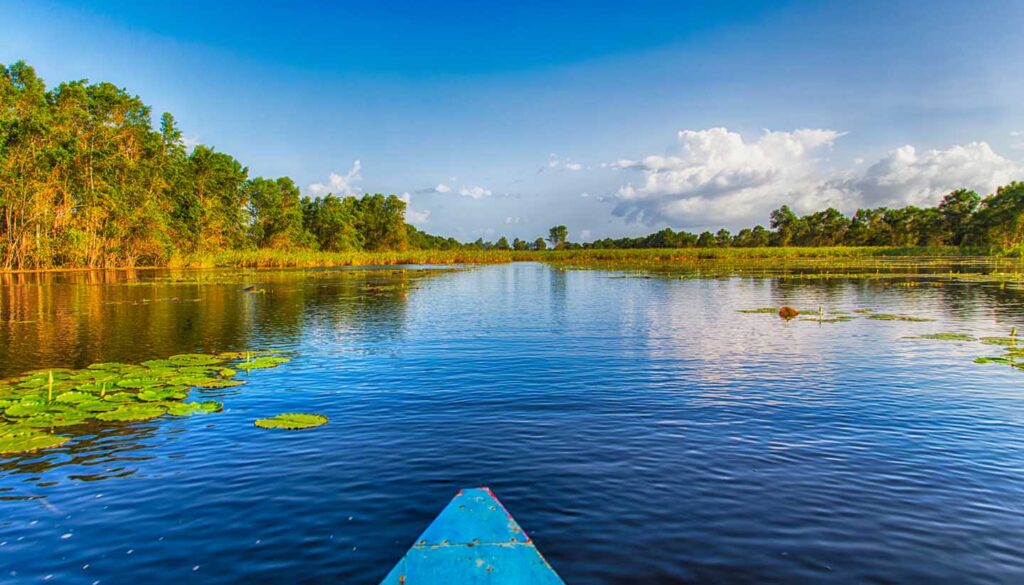
Weather and Climate
Suriname experiences a tropical climate with two distinct seasons – dry and rainy.
Dry Season
The dry season in Suriname generally runs from February to August, offering sunny and relatively drier weather. This is considered the peak tourist season, with pleasant temperatures and less rainfall. It is the perfect time to explore outdoor attractions and embark on adventure activities.
Rainy Season
The rainy season in Suriname lasts from September to January, bringing frequent showers and high humidity. Despite the wet weather, it is still possible to enjoy your trip during this time, as rain showers are usually short-lived. Just be prepared with rain gear, umbrellas, and waterproof bags to protect your belongings.
Average Temperatures
Suriname enjoys a year-round tropical climate, with average temperatures ranging from 24°C (75°F) to 31°C (88°F). The temperatures remain fairly consistent throughout the year, making it a pleasant destination for travelers seeking warmth and sunshine.
Shopping and Souvenirs
Suriname offers a variety of shopping opportunities, allowing you to bring back unique souvenirs and mementos.
Paramaribo Central Market
Explore the bustling Paramaribo Central Market, a vibrant hub where locals gather to buy fresh produce, spices, handicrafts, and clothing. This lively market offers a glimpse into the daily lives of Surinamese people and provides an ideal place to purchase unique and authentic souvenirs.
Maroon Crafts
The Maroon communities in Suriname are renowned for their traditional craftsmanship. Look out for intricately carved wooden statues, woven baskets, and colorful textiles, which showcase the Maroon culture and heritage. These handcrafted items make for fantastic souvenirs and meaningful gifts.
Wooden Souvenirs
Suriname is known for its rich reserves of fine tropical hardwoods. Take the opportunity to purchase wooden souvenirs, such as carved ornaments, jewelry boxes, or miniature replicas of traditional houses. These items not only reflect the country’s natural resources but also make for beautiful and unique keepsakes.
Local Artwork
Suriname has a vibrant art scene, with talented local artists creating captivating pieces inspired by the country’s culture and nature. Visit art galleries in Paramaribo to discover original paintings, sculptures, and ceramics that capture the spirit of Suriname. Owning a piece of Surinamese artwork is a wonderful way to commemorate your trip and support local artists.
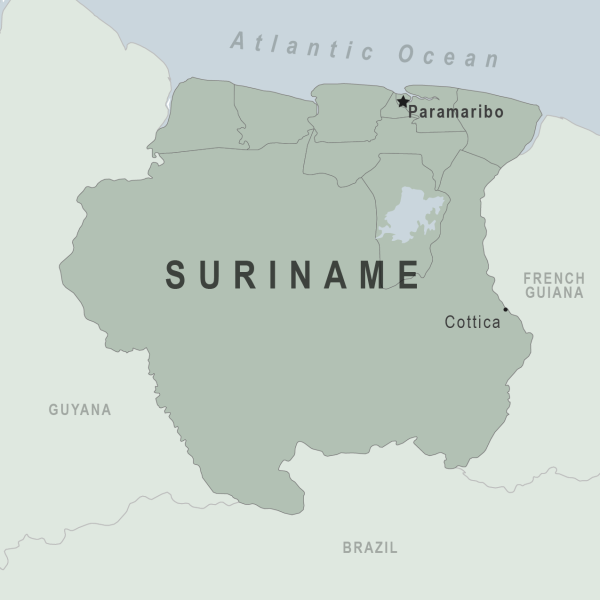
Adventure Activities
Suriname’s untouched natural landscapes offer endless opportunities for adventure enthusiasts.
River Expeditions
Explore Suriname’s pristine rivers and waterways by embarking on a river expedition. Experience the thrill of traversing rapids, encounter diverse wildlife, and immerse yourself in the tranquility of the rainforest. Whether you choose kayaking, canoeing, or a river cruise, there is an adventure awaiting every water enthusiast.
Rainforest Hiking
Embark on a memorable rainforest hiking adventure and discover the incredible biodiversity of Suriname’s pristine jungles. Trek through dense foliage, listen to the sounds of exotic birds and spot unique wildlife species. Engage with local guides who possess a wealth of knowledge about the rainforest and its inhabitants.
Maroon Village Visits
Immerse yourself in the vibrant culture of Suriname’s Maroon communities by visiting a traditional village. Learn about their rich history, customs, and traditional way of life. Engage in activities such as dancing to traditional music, participating in traditional craft workshops, or tasting authentic Maroon dishes.
Birdwatching Tours
Suriname is a paradise for birdwatchers, boasting over 700 bird species. Join a guided birdwatching tour to discover a plethora of colorful and exotic bird species. From vibrant macaws to rare hummingbirds, Suriname’s rainforests and wetlands offer endless opportunities for bird enthusiasts to observe these feathered wonders.
Local Festivals
Suriname is known for its vibrant festivals, which provide a unique opportunity to witness the country’s rich cultural traditions and diversity.
Holi Phagwa
Experience the joyous festival of Holi Phagwa, celebrated with great enthusiasm by the Hindu community in Suriname. Join in the colorful festivities, where people playfully splash vibrant powders and water on each other, symbolizing the triumph of good over evil.
Maroon Day Celebrations
The Maroon Day celebrations commemorate the independence and resilience of the Maroon communities in Suriname. Witness vibrant processions, traditional dance performances, and other cultural activities that showcase their unique heritage. It is an excellent opportunity to learn about their struggles and celebrations.
Parbo Bier Festival
Beer enthusiasts should not miss the Parbo Bier Festival, a lively event held annually in Paramaribo. Celebrate Suriname’s favorite beer brand, Parbo, with live music, dance performances, and, of course, ample beer-drinking. Experience the festive atmosphere and mingle with both locals and tourists alike.
Keti Koti – Emancipation Day
Keti Koti, meaning “Breaking the Chains,” is a significant national holiday in Suriname. It commemorates the abolition of slavery and celebrates the country’s diverse cultural heritage. Witness the grand parade, cultural exhibitions, and traditional ceremonies that honor the legacy of those who fought for freedom.
Suriname’s History
Understanding Suriname’s history is essential to grasp the country’s identity and appreciate its cultural tapestry.
Colonial Past
Suriname was once a Dutch colony, known as Dutch Guiana, and played a vital role in the transatlantic slave trade. It saw the establishment of sugar and coffee plantations, which shaped its demographic and cultural landscape. Many historic buildings in Paramaribo reflect this colonial past, offering a glimpse into Suriname’s history.
Slavery Era
Slavery had a profound and lasting impact on Suriname. African slaves were brought to work on the plantations, and their descendants, known as Maroons, have since preserved their unique culture and traditions. Learn about this dark period of Suriname’s history and witness the resilience and heritage of the Maroon communities.
Independence and Modern Era
Suriname gained independence from the Netherlands in 1975, marking a new chapter in its history. Since then, Suriname has experienced social, political, and economic changes. Today, Suriname embraces its multicultural heritage and works towards sustainable development and cultural preservation.
Conclusion
Suriname, with its vibrant culture, breathtaking nature, and welcoming people, offers a truly remarkable travel experience. By familiarizing yourself with the visa and entry requirements, you can embark on your Suriname adventure with confidence and peace of mind. From exploring the colonial architecture of Paramaribo to immersing yourself in the pristine rainforests, Suriname promises unforgettable moments and a deeper appreciation for its rich heritage. So, pack your bags, venture into the unknown, and let Suriname captivate your heart and soul.
